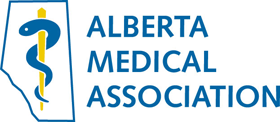Welcome to Canada! Now for the challenge of accessing health care.
Emerging Leaders in Health Promotion

Contributed by: Vanda Killeen | AMA Public Affairs
The ELiHP grant program
The Emerging Leaders in Health Promotion grant program provides funding to help medical students and resident physicians conceive and implement health promotion projects that support the development of their CanMEDS/FM core competencies, particularly health advocacy.
Jointly sponsored by the Alberta Medical Association and the Canadian Medical Association and its subsidiaries – MD Financial Management and Joule™ – Emerging Leaders in Health Promotion (ELiHP) projects facilitate the growth of physician leadership and advocacy skills in a mentored environment while enhancing the wellbeing of the general Alberta population through education, advocacy or community service.
For University of Alberta medical student Karl Narvacan, his Emerging Leaders in Health Promotion grant project is near and dear to his heart. As an immigrant, Karl has “walked in the shoes” of immigrants and refugees, so he has experienced and can understand the many often overwhelming challenges faced as newcomers to Canada.
“I have first-hand experience with migration into a new country and the struggles an average family faces, knowing almost no one in this new place,” said Karl. “With several barriers – including learning a new language; overcoming their fear of seeking medical treatment because of potential consequences to immigration status; and understanding the Canadian health system model and methods for accessing health care – there’s a real danger that immigrants and refugees with chronic health conditions may not seek the medical attention and treatment they need.”
Therein lies the premise of Karl’s ELiHP project HealthLINC: Health Literacy and Information for Newcomers to Canada.
“Migrant and refugee health remains an under-served sector of public health care, despite the growing immigrant population in Alberta and Canada,” said Karl, adding that this situation exists for a number of reasons.
“Health care information specific to newcomers to Canada is lacking, even in immigration service centres,” Karl explained. “And despite the proven benefits of having a family physician, particularly for vulnerable populations such as migrants and refugees, the search for a quality family practice within convenient, accessible proximity – that is accepting new patients – can prove very challenging.”
Karl knows from both anecdotal and personal experiences that new migrants and refugees are often coming here with understandings and perceptions of health care models based on their countries of origin. And as mentioned, they may fear consequences to their immigration status as a result of seeking medical treatment. “These factors can make our Canadian model seem very foreign and difficult to navigate,” says Karl.
With its free information seminars on the health care system and how to navigate it, HealthLINC aims to bridge these gaps. Integrated within the context of services provided by Migrante Alberta – an organization that supports temporary foreign workers – the half-hour HealthLINC sessions provided information on many topics including the following:
- basic tenets of the Canadian health care system
- financial coverage of drugs and health care services
- how to get an Alberta Health Care card
- organ donation
- hospital services
- 911/ambulance services
- when to go to the emergency room
The two presentations, made to members of Migrante Alberta, were followed by 10 to 15 minutes of guided exploration of the Primary Care Network website and other related web resources in search of available family physicians that are geographically suitable (located near the client’s residence or workplace).
Project co-leads and fellow University of Alberta medical students Shez Kassam and Christine Patterson assisted with presentations and other aspects of HealthLINC. The pair helped draft an ethics application and create the presentation materials and a poster for the AMA Advocacy Night, and they helped Migrante Alberta clients navigate the PCN website and find family doctors. “I couldn’t have done this without their help,” Karl said.
Also essential to the success of HealthLINC was project mentor Dr. Jill Konkin, Associate Dean of Community Engagement, Faculty of Medicine & Dentistry, U of A.
“I was most grateful for the mentorship and supervision provided by Dr. Konkin,” Karl commented. “As a physician, educator and social advocate, she helped guide me through the whole concept of HealthLINC and the identification of its goals and objectives.”
At some point, Karl intends to perform quantitative evaluations of his project but more presentations will be required. However, the feedback he and his two project co-leads gathered from the two presentations to date was positive.
“This was a well-received project, and both Migrante Alberta coordinators and members were receptive and appreciative of the project goals,” he explained. “We’ve received several requests for more information from the presentation participants such as telephone numbers of relevant agencies, websites for related resources and information about mental health resources available to newcomers.”
Karl expressed appreciation of the support offered by the ELiHP grant program and the opportunity the funding provided him to “give back to the community … and to work on something that I’m truly passionate about and have been thinking about since I got into medical school.”
“I’ve always been interested in migrant health and our experience through this project – of decreasing the gap between health care access and newcomers to Canada – has been phenomenal. I believe that the experience has made me a better person,” concluded Karl.
References available upon request.
